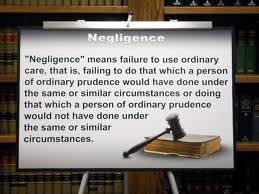Legal Issues

Can we please get your advice on this one question?
Home > Patient Care And Education > Legal issues
- Common Terminology
- Legal Doctrines
As we begin our review of Legal Issues facing the Radiation Therapist, it is informative to present a high level overview. The main legal notion is that of duty of care. Duty of care refers to a set of good medical practices expected of health care workers. In simple words, health care workers have an obligation to provide services to patients to the best of their ability.
Treating patients to the best of our ability can present challenges to Radiation Oncologists as well as Radiation Therapists because we may be involved in palliative (pain relieving) care. Indeed, this palliative care maybe for patients that will not normally survive their condition.

- Common Terminology
There is some common legal terminology a Radiation Therapist should be familiar with.
The term battery means inappropriate physical contact. The term battery comes from the French word batterie; beating. Your handling and touching of patients must be proper as well as suitable in the circumstances. Sexual battery means the inappropriate touch of the sexual parts of another person.
Of course, the use of gloves as well as Standard Universal Precautions is appropriate at all time. It is best practice if you explain what you are about to do with a patient to avoid any perceptions about inappropriate physical contact. It is also a best practice if you work in teams of two therapists when dealing with patients.
The term negligence refers to a failure to demonstrate the care a normal & prudent Radiation Therapist would exercise. A Radiation therapist’s behavior must be consistent with that of your Radiation Therapist peers when it comes to dealing with patients.

The term medical malpractice means acting or failing to act to provide appropriate patient care. A duty exists when you as a Radiation Therapist undertake to work with a patient. Malpractice occurs if you deviate from the generally accepted standard of care. Ask yourself the question, “How would another Radiation Therapist act in the same situation”? If your action or your lack of action brings about patient harm then that’s malpractice.

- Legal Doctrines
There are two legal doctrines a Radiation Therapist should be familiar with. The first term is Respondaet Superior and the second is Res Ipsa Loquitor.
The legal doctrine Respondaet Superior is a Latin term. This legal doctrine says that in many cases an employer is responsible for the actions of its employees within their course of work. The legal doctrine Respondaet Superior is often as the “Master-Servant” rule.
When it comes to pointing finger of responsibility a couple of questions emerge. Question: Did the action take place at a work place during working times?
Question: Was the action something the employee would normally perform?
Question: Did the employee act in any self-interest?
Clearly, if a Radiation Therapist is acting for the organization in the normal course of their duties in the clinic without self-interest the employer is responsible. However, if a Radiation Therapist is not acting for the organization outside normal course of their duties outside the clinic with self-interest the employer is not responsible.
The legal doctrine Res Ipsa Loquitor is also a Latin term. The Latin term translates to “The Thing That Speaks for Itself”. This term refers to situations where no questions or further explanations are needed for someone to understand what has taken place. The main notion here is of “exclusive control”.
For example, if a television falls on a patient that they have not touched in a waiting room and this situation is seen by several people then it is pretty clear that the clinic is at fault because “the situation speaks for itself”. Here is another example. If a Radiation Therapist re-connects a nasal cannula to a patient requiring oxygen after a patient transfer and then turns on the oxygen but fails to attach the tubing but walks away and this situation is seen by several people then it is pretty clear that the Radiation Therapist is at fault because “the situation speaks for itself”.
Home > Patient Care And Education > Ethical & Legal Aspects
- Ethical and Legal Aspects
- Interpersonal Communication
- Patient Assessment and Management
- Treatment Side Effects
- Blood Studies
- Dietary Counseling
- Physical Assistance and Transfer
- Patient Transfer and Movement
- Assisting Patients with Medical Equipment
- Medical Emergencies
- Infection Control
FREE Infographic What successful people believe. What successful people do
Dictionary of Cancer Terms
Need help understanding a word? Here is an electronic resource that gives meaning to Cancer terms and their usage.

StrengthsFinder 2.0